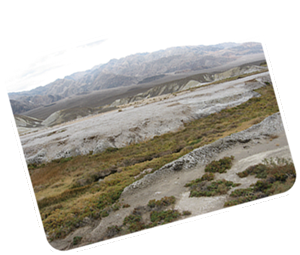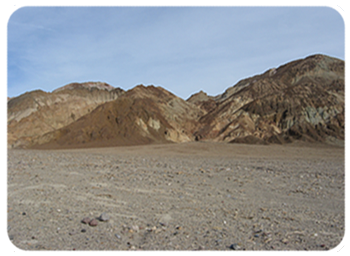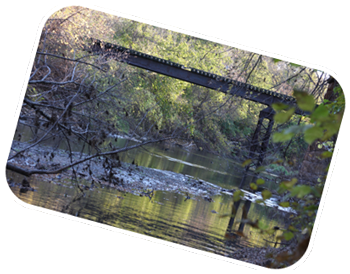
Prospective Students
The following discussion outlines some of my philosophies regarding graduate education and expectations of graduate students. Hopefully this will answer any questions you may have about working with me and what is expected of you during graduate school. If you have any questions, please do not hesitate to give me a call.
The Process
Research projects are proposed to various agencies that will help answer research and management questions. If a project is funded, it serves as the basis for a graduate student's thesis or dissertation research. I encourage students that are interested in working with me to contact me directly because I keep potential candidates on file in the event a project receives funding. I sometimes advertise opportunities through the American Fisheries Society (AFS), but I usually rely on previous contacts with students. I will only accept a student if funding is available for a research assistantship. Once a student is selected for a project, the formal application process through the College of Graduate Studies begins. Requirements for admission to graduate studies is generally a cumulative GPA of 3.0 and GRE scores that are in the upper 50th percentile. In addition to these requirements, I prefer students who have substantial field experience and have been active in AFS.

Stipends
Stipends for MS and PhD students in the Department of Fish and Wildlife Resources (FWR) are highly competitive with other universities. Graduate programs generally require 2.5 years for MS students to complete, whereas PhD programs typically take 4-5 years. During that time, stipends will be supported from funding associated with the contracts and grants. If students are interested in gaining teaching experience, these opportunities are available and encouraged.
Tuition
The University of Idaho waives nonresident tuition for graduate students and fees are typically paid by other sources (e.g., contracts, grants). I will support tuition associated with continuing education courses (e.g., continuing education at AFS meetings or the National Conservation Training Center) if the course will aid in the completion of a project. Payment of other continuing education tuition is considered on a case-by-case basis.
Hours
When I started graduate school, I was told "...that there never was a graduate student who was successful putting in 40 hours a week". In my experience, this is completely true. While I do not have specific "requirements" for the number of hours worked by my students, my policy is that students dedicate as much time as necessary to meet established milestones and complete their program in a timely manner. This is never less than 40 hours per week.
My graduate students may not hold outside employment. A graduate program constitutes more than a full-time job that requires dedication and undivided attention. It is impossible to be successful in graduate school (research and coursework) while also working on the side.

Time Off
Like most other university programs, graduate students do not accrue official vacation time. However, I accommodate requests for time off if project activities and milestones are on schedule, if the absence will not interfere with scheduled activities, and if there is sufficient notice to preclude any scheduling problems (at least 2 weeks). Once again, graduate school is demanding and taking several weeks off a year will not result in a successful program.
Student Offices
Graduate students are provided with office space and furniture. In addition to a graduate student computer room provided by FWS, computers are provided in my lab for graduate student use. I STRONGLY encourage graduate students to use their office space and the lab as their primary work area. Not only does this serve to make you available should questions arise, but you will also learn to work amidst distractions (aka real life). Working on campus also allows students to interact with other graduate students. Fellow graduate students often become life-long friends, are a source of help and motivation, and provide a network of professional contacts that will follow you throughout your career. What you learn from one another is often as or more important than what you learn through your research or coursework.
Proposals
Thesis or dissertation proposals are mandatory for all graduate students and must be approved by your Program of Study Committee. Typically, a draft of the proposal should be completed by the end of the first full semester at the UI.
Publications
I was "raised" under the premise that research is not complete until it has been published in the peer-reviewed literature. Thus, I require that students conduct high-quality research that is not only publishable, but that at least one manuscript from their research is submitted for publication in a national-level, peer-reviewed journal. All costs associated with publication will be paid through grants and contracts. There are several reasons for publishing your research. First, research universities maintain the reputation and status largely by the number and quality of peer-reviewed publications produced by its students and faculty. Publishing, therefore, has a direct influence on the quality and value of your degree. Second, graduate students that publish their research get jobs. Publishing your research demonstrates to employers that you work hard, have critical-thinking skills, are dedicated to the profession, and can finish projects once they are started. Lastly, most research projects are funded using public funds. As such, we not only have a responsibility to ensure that the research is the highest quality available, but we also have a responsibility to make sure the information is available to the public. Along these lines, I encourage students to publish popular articles whenever appropriate (e.g., In-Fisherman). While many benefits are obtained from publishing, the best reason for publishing is to get the information to those that can use it for the conservation and management of our aquatic resources. After all, what's the point of doing it if no one knows about it?

Side Projects
Similar to the notions described above regarding publishing, I was "raised" with a strong appreciation for side projects and undergraduate mentoring. Depending on the project, I encourage my graduate students to conduct side projects that contribute to their thesis or dissertation research. Projects are often conducted in association with undergraduates who assist in data collection, laboratory processing, data analysis, and even writing. Side projects help accomplish several objectives of your graduate education and development as a professional. First, research projects are often funded with the understanding that very specific questions will be answered. Unquestionably, graduate students are able to develop their research direction (e.g., questions, methods, analysis), but this direction is bounded by contractual obligations. Such a system often circumvents important steps in the education process. Side projects provide students with an opportunity to develop unique research questions, identify methods for answering those questions, and then implement the research. Second, fisheries data are complex. Although graduate students become familiar with different data structures and analyses through their coursework and thesis or dissertation research, side projects allow students to encounter additional data structures and explore different analysis techniques. Such experience greatly improves the quality and efficiency of data analysis associated with thesis or dissertation research. Third, side projects provide students with publications. Although the benefits of publications are discussed above, publishing side projects also gives students additional experience with technical writing and the review process.
Presentations
Presentations are another important method of communicating research findings to the scientific community. Regardless of where graduate students are employed following graduate school, having excellent oral communication skills is important. Therefore, I encourage my students to give oral presentations as early in their program as possible and as often as possible thereafter. Most of these presentations are at professional meetings (e.g., AFS meetings), but they may also include public meetings, departmental presentations, or meetings with state and federal agencies. With regard to travel to meetings, all travel is paid if a student presents a paper or is involved in AFS leadership.
Quarterly Reports
My graduate students are required to write a short report on their research every three months. These reports typically include research objectives, progress made and new insights gained in the previous quarter, and milestones for the upcoming quarter. Similar to oral communication skills, writing skills are absolutely vital to success as a fisheries professional. Quarterly reports help students develop their technical writing skills, reflect on progress and results of their research, and establish goals for the future. Reports are sent to funding agencies and project collaborators, which not only informs professionals of current research findings, but also helps students network with practicing fisheries professionals.
Professional Society Involvement
My students are expected to become actively involved in professional societies, particularly AFS. Involvement in professional societies shows others that you are dedicated to the profession, enhances and expands your education in fisheries science, and allows you to network with other fisheries professionals.

Personal and Professional Development
As a natural resource professional, you will be continually challenged. This is one of the most exciting aspects of our profession, but lacking the skills (i.e., technical, communication, social) necessary to deal with these challenges can be frustrating. Fisheries professionals are required to design, coordinate, and implement projects; appropriately analyze data, interpret and synthesize complex results and concepts; communicate insights to other natural resource professionals and the public (orally and in writing); be computer literate; know a lot about fish, water quality, and fish habitat; and be able to do it all in an effective and timely manner. Graduate school provides you with opportunities to develop these skills, but they are not necessarily skills you will learn in your classes. Learning how to develop these skills as they pertain to you should be an important goal for you in graduate school. Read journals. If you find something related to your project or something of general interest, make a copy to discuss with me and your fellow graduate students. [As an aside, when I was an undergraduate at the University of Idaho, I did a independent research project under the guidance of Dave Bennett. The project was sub par, but Dave told me that "...when reading journal articles, pay close attention to technical writing styles and then try to emulate what you read in your writing". This is good advice and something I follow to this day.] Learn to efficiently use different software packages (i.e., database, spreadsheet, statistics programs). Try different methods of managing your time and different organizational strategies to see what works best for you. Understanding what works best for you and learning to think on your own is critical for ensuring that the skills you develop as a professional will stay with you throughout your career. There is no better time to learn, develop, and hone those skills than in graduate school.
Finally, my graduate advisor (Chris Guy) always used to say that "graduate school is not supposed to be easy, otherwise everyone would do it". I could not agree more with this statement. Like Chris and many others in our profession, the bar for my graduate students is raised high. The level of the bar is different for different students, but I guarantee that you will be challenged. If you work hard and truly try to develop as a fisheries professional, I also guarantee that you will be successful.